Removal Procedure
Caution: Unless directed otherwise, the ignition and start switch must be in the OFF or LOCK position, and all electrical loads must be OFF before servicing
any electrical component. Disconnect the negative battery cable to prevent an electrical spark should a tool or equipment come in contact with an exposed electrical terminal. Failure to follow these precautions may result in personal injury and/or damage to
the vehicle or its components.
- Disconnect
the negative battery cable.
- Remove the valve rocker arm cover. Refer to
Valve Rocker Arm Cover Replacement
.
Remove the timing belt from the vehicle. Refer to
Timing Belt Replacement
.
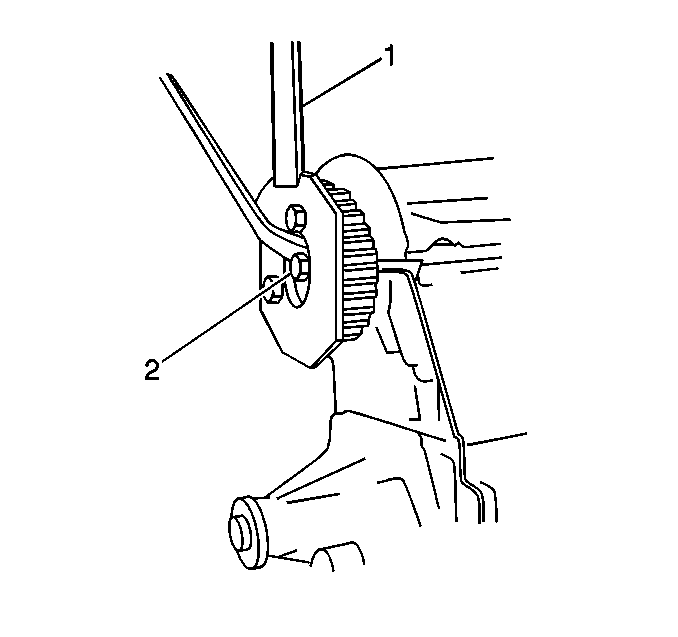
- Remove the camshaft timing
belt pulley.
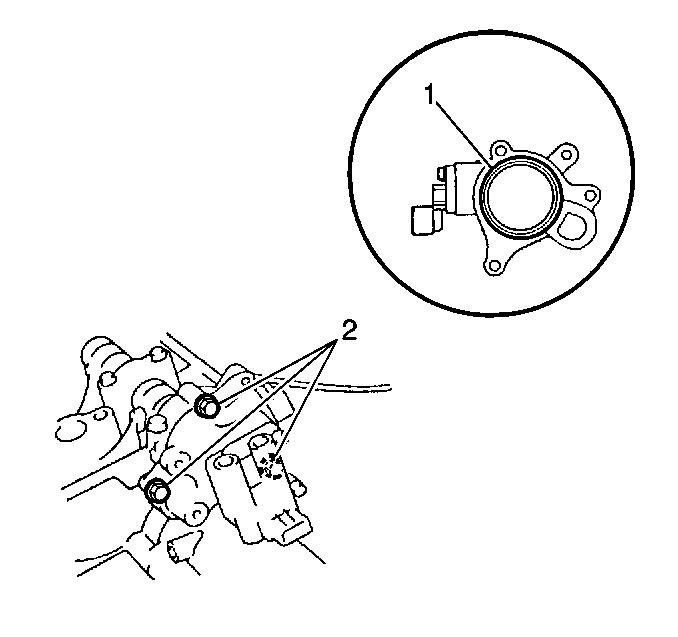
- Remove the outboard ignition
coil from the camshaft sensor housing.
- Remove the camshaft sensor from the camshaft sensor housing.
Important: In order to catch any oil, place a shop rag under the camshaft housing
before removing it from the cylinder head.
- Remove the three camshaft sensor housing bolts (2) and the camshaft
sensor housing from the cylinder head.
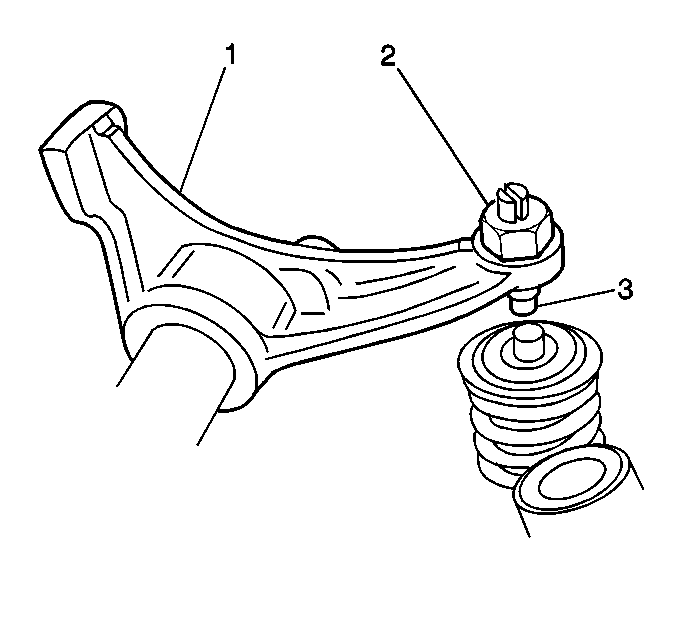
- Loosen all valve adjusting
screw lock nuts (2), turn adjusting screws back all the way to allow all rocker
arms to move freely.
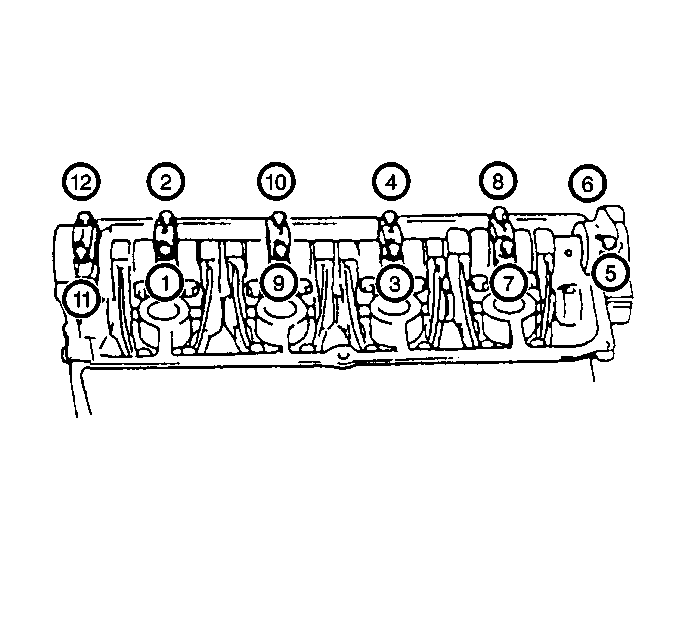
- Gradually remove the twelve
camshaft housing bolts in the sequence shown.
Installation Procedure
- Apply clean engine oil to the following components:
- Install the camshaft to the cylinder head.
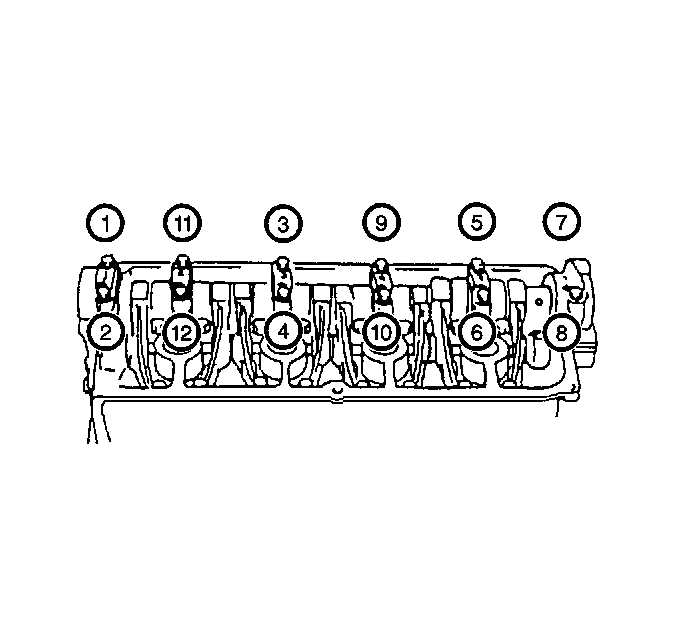
- After applying the engine
oil to the housing bolts, tighten in the sequence shown.
Tighten
Tighten the camshaft housing bolts to 11 N·m (8 lb ft).
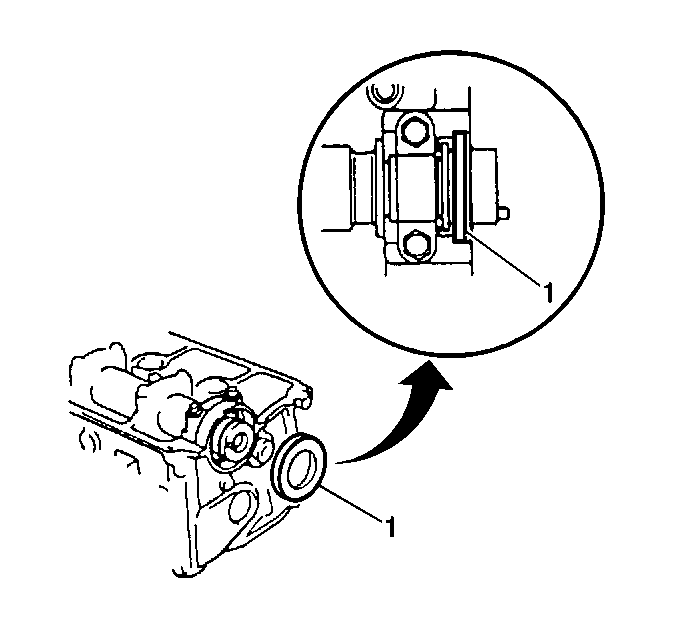
- After applying engine
oil to the oil seal lip (1), install the camshaft oil seal (1) to the housing
until the oil seal is flush with the surface of the housing.
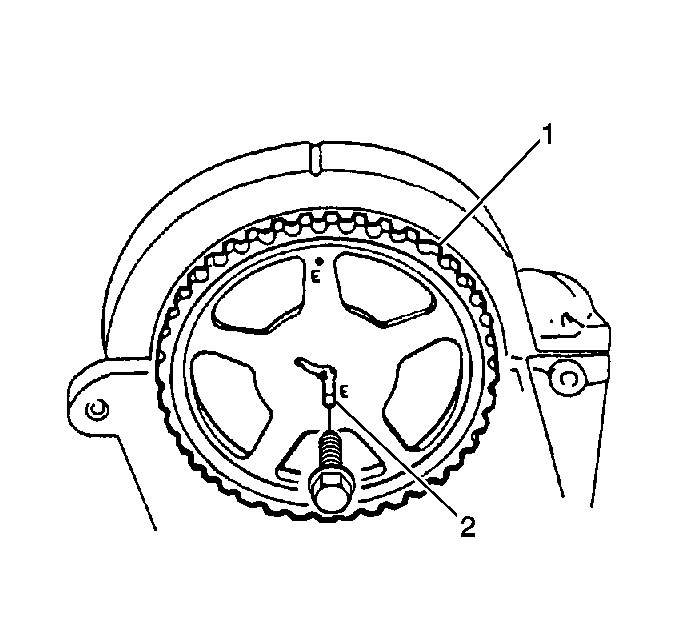
- Install the camshaft timing
sprocket.
- Perform the following procedure in order to install the camshaft
timing sprocket to the camshaft.
| 6.1. | Install the camshaft timing sprocket to the camshaft. |
| 6.2. | Verify that the pin on the camshaft fits the slot on the sprocket. |
Notice: Use the correct fastener in the correct location. Replacement fasteners
must be the correct part number for that application. Fasteners requiring
replacement or fasteners requiring the use of thread locking compound or sealant
are identified in the service procedure. Do not use paints, lubricants, or
corrosion inhibitors on fasteners or fastener joint surfaces unless specified.
These coatings affect fastener torque and joint clamping force and may damage
the fastener. Use the correct tightening sequence and specifications when
installing fasteners in order to avoid damage to parts and systems.
| 6.3. | Use the camshaft
timing sprocket bolt in order to secure the camshaft timing sprocket to the
camshaft. |
Tighten
Tighten the camshaft timing sprocket bolts to 60 N·m (43 lb ft).
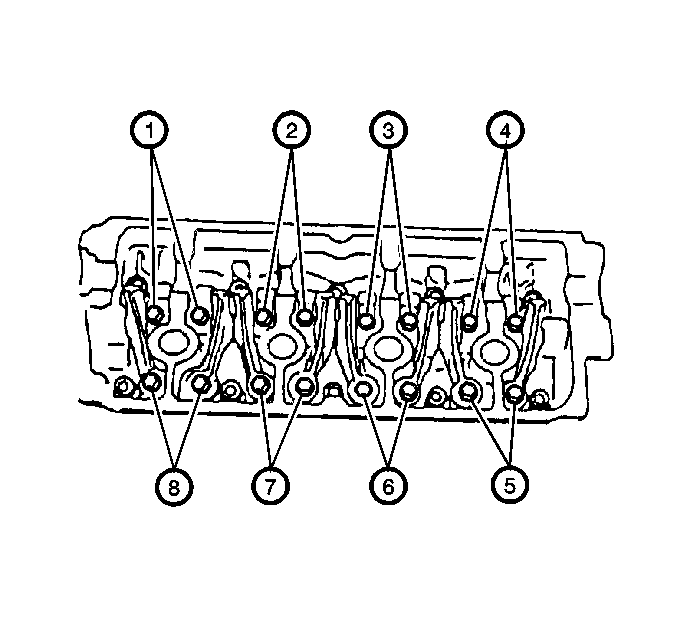
- Perform the following
steps to adjust the valve lash.
| 7.1. | Set the number one cylinder to top dead center. |
| 7.2. | Ensure the camshaft is in proper phase. |
| 7.3. | Adjust valves 1, 2, 8, and 6. |
| 7.4. | Rotate the crankshaft one revolution (360 degrees). |
| 7.5. | Adjust valves 3, 4, 7, and 5. |
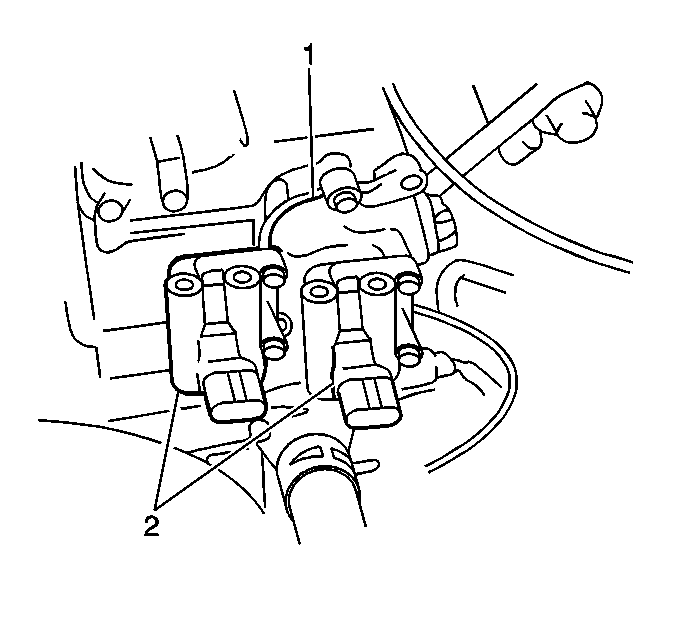
- Install the camshaft sensor
housing to the cylinder head.
Tighten
Tighten the camshaft sensor housing bolts to 11 N·m (8 lb ft).
- Install the ignition coil to the cam sensor housing.
- Install the cam sensor to the cam sensor housing.
- Install the timing belt. Refer to
Timing Belt Replacement
.
- Install the valve cover. Refer to
Valve Rocker Arm Cover Replacement
.
- Connect the negative battery cable.









